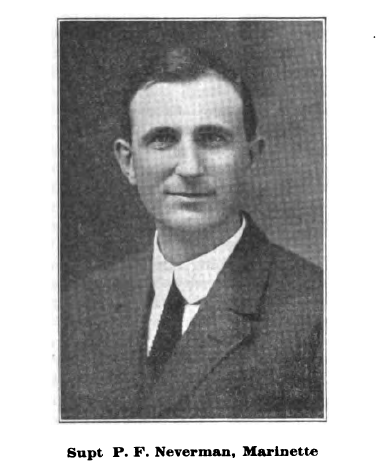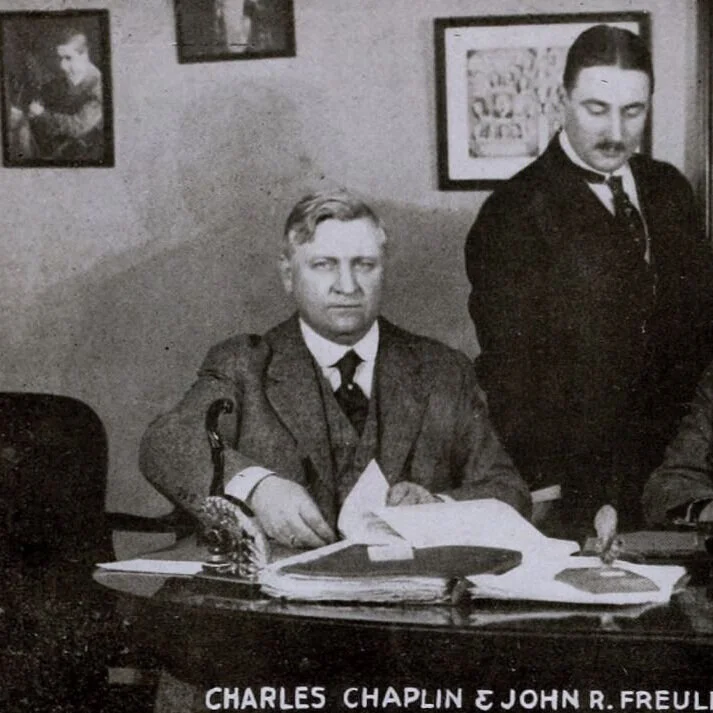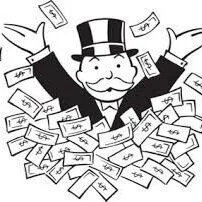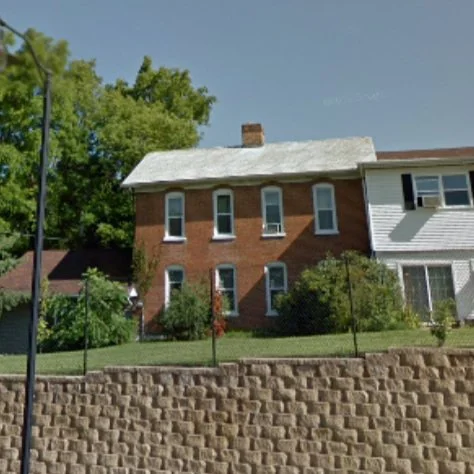The British Connection: Persecuting Judge Becker
Last Thursday a member of the Green County Historical Society gave me a document that she knew I needed, it is titled “Espionage Case Against Judge John M. Becker”. This paper was written by Lillian Hanson under the guidance Dr. Milton Longhorn for a master’s degree program course titled “XH2 Great Issues in Western History”. Dr. Longhorn was both a teacher and an administrator at UW-Platteville, which houses a huge archive of Green County historical information minus our criminal court case records 1860-1940(?).
I’m extremely glad this member thought of me, as Hanson’s paper has provided the biggest break in uncovering Monroe, WI’s “British Connection” in several months. To remind readers, the “British Connection” is that connection which explains Leon Goetz’s 1910 submarine escape pod patent, which I talk about here; and with regard to Great Lakes submarines here; and again with regard to Mutual Film here.
Hanson documents another abuse of the Espionage Act of June 15, 1917; conspirators sought to use the act to silence political dissent in Monroe, WI. The abuse was orchestrated by local banker “Mr. Ludlow” and his henchmen “Mr. Young” and “Mr. Neverman”. These three men held hawkish, pro-British views and felt threatened by the more popular Judge Becker and his “America First, Last, and at All Times” stance.
Green County Judge John M. Becker, in office 1898-1918. His America First policies earned him the enmity of British agents on US soil.
Judge John M. Becker had served as judge in Green County for 21 years when Mr. Ludlow et alia decided to target Becker with their trumped-up charge. Becker, who opposed the war, had taken action which showed just how unpopular Ludlow, a pro-war banking magnate, and his policies were.
On March 21st 1917, two and a half weeks prior to the US declaration of war, Judge Becker asked the Monroe City Council if he could organize a vote on the war issue as a “means of registering the sentiment toward war in a population comprised so largely of native Swiss or Swiss extraction”. Permission was granted and the procedure was paid for by Judge Becker and his associates (Becker headed the local Peace Committee). On April 3rd 1917 Green County declared 954 to 95 against Congress declaring war under existing conditions. That’s 10 to 1 against war at that time, under current circumstances. The nation had elected then-president Wilson on a pacifist ticket in late 1916; Monroe’s referendum was the only official referendum on this early-1917 war in the United States.
Judge Becker (a Democrat) used the success of the referendum to launch his campaign for Governor of Wisconsin and was supported by Senator Robert M. La Follette (a Progressive Republican). The anti-WWI platform had widespread, bi-partisan support. Becker and La Follette’s populist (and democratic) stance angered pro-war interests on the East Coast: “The Eastern [news]papers cited it [Becker’s referendum] as proof that Wisconsin was Pro-German.” Powerful interests which supported the British Empire and its ‘Great War’ could not ignore equally powerful political statements like Monroe’s referendum, given that the legitimacy of Washington’s actions was supposed to rest on the consent of the people.
As one may expect, Becker’s political adversaries had a financial stake in this foreign war:
From “Wisconsin in the World War”, by R. B. Pixley, 1919.
Let’s examine our local representatives of elite East Coast interests a little more closely:
The “Mr. Ludow” of Hanson’s paper is one of the four male descendants of Arabut Ludlow and is probably either Henry Ludlow (1848-1923) or Willis Ludlow (1854-1938). If Willis was the orchestrator of Becker’s persecution, Willis had the support of Henry, because “Mr. Ludlow” had access to Judge Becker’s banking records, which I’ll explain shortly. Henry Ludlow inherited the presidency of “Ludlow’s Bank”, a.k.a. The First National Bank of Monroe, which his father Arabut Ludlow, alongside other members of Monroe’s Universalist Church, had founded. Most farmers in the county owed the Ludlows money at some time or another.
Ludlow’s bank was located on the eastern end of the North Side of our historic town Square.
A Modern map showing the placement of Ludlow’s First National Bank of Monroe. This bank building went through many different architectural designs, but always (and still) occupies the same lot.
The tallest building in this picture of the North side of Monroe’s Square is Arabut Ludlow’s First National Bank of Monroe. Note two stairs flanking a sub-street basement shopfront. Superior reproductions of all of the photographs in this post can be purchased as part of Matt Figi’s book “Pictorial History of Monroe Wisconsin”.
“Mr. Young” was Daniel Young, a local grocer and William Wesley Young’s father. When Daniel Young helped invent sedition/treason charges against Becker, his eldest son William Wesley had been serving as an agent of British Intelligence interests for at least two years, but probably closer to five. William Wesley had stoked anti-German sentiment among readers of the McClure Syndicate publications as early as 1913.
Daniel Young’s grocery store was located on the western end of the North side of the Square.
The site of Daniel Young’s grocery story building— Young owned the entire brick structure— is currently occupied by Elite Tae Kwon Do.
The Young & Co. Building which housed Daniel Young’s Grocery on the street level. This picture was taken around 1920. Matt Figi, “Pictorial History of Monroe Wisconsin”.
Image from inside Daniel Young’s Grocery. Matt Figi “Pictorial History of Monroe Wisconsin”.
“Mr. Neverman” was Paul F. Neverman, the Superintendent of Monroe Schools, who received a substantial pay increase shortly prior to the declaration of war. The Ludlow, Twining and Dunwiddie families were prominent setting up the Monroe school system.
A young Paul F. Neverman, from the Wisconsin Journal of Education, January 1920.
Superintendent Neverman used his connections at the Y.M.C.A. to stump and recruit for WWI; the Wisconsin Journal of Education used its pages unrelentingly to collect resources for the conflict. Neverman seems to have been particularly well connected in financial circles dealing with war loans and the (then very new) Federal Reserve Bank’s “war saving stamp” program— he used his classroom to hawk these investments to children and their parents.
Although Conrad Goetz, Leon’s father, played no role in the persecution of Judge Becker, I will point out here that Conrad’s tailor shop was in the basement of Henry Ludlow’s bank, and John Dexter Dunwiddie, the high-profile lawyer brother of William Dunwiddie, who witnessed Leon’s 1910 submarine patent, kept his office on the upper floors of the same bank. (William Dunwiddie was Monroe City Clerk at the time of the witnessing.) William and John Dexter’s father, Judge Brooks Dunwiddie, also kept his law office “in Ludlow’s new brick building”— which would most likely have been one of the incarnations of the First National Bank of Monroe on the North side of the Square. [See Matt Figi “Becoming a Village: Monroe WI in the 1850s”]. The county’s most prominent banking and legal families had a long-standing symbiosis.
Modern Monroe, WI map showing historic properties relevant to individuals involved in our “British Connection”.
The Goetz Tailor business, run by Leon’s father Conrad, occupied the sub-street basement level of Ludlow’s bank for a time. Matt Figi “Pictorial History of Monroe Wisconsin”.
John Dexter Dunwiddie in his office on the upper floors of Ludlow’s Bank. J. D. spent his entire working life in this premises. From the 1850s his father Brooks also rented an office in a Ludlow building, most likely that of the bank.
A young Brooks Dunwiddie is on the RHS of this picture. Matt Figi “Pictorial History of Monroe Wisconsin”.
Brooks Dunwiddie
As Green County Judge from 1858-98, Brooks was John M. Becker’s predecessor on the bench.
As readers can see, a number of personalities tied to the “British Connection” in Monroe owned or rented property along the North side of the Square, as did at least two of the conspirators against Becker.
Ludlow et alia were not able to attack Becker prior to the passage of the Espionage Act on June 15th, 1917. They planed a two-phased trap, the first phase of which was sprung during a heated meeting of the unenthusiastic Green County Defense Council, from Hanson:
The statements made by the Judge in a speech at the Green County Court House on February 5th, 1918, were the immediate cause for the Espionage Case…
Judge Becker arose and came to the front of the room and began his speech by saying that he loved the generous and loyal people of Green County. He felt Green and Dane Counties couldn’t be compared as the latter was three times larger and possessed more wealth. [Dane County, the seat of state capital Madison, had appropriated money for the war effort while Green County had not.] At the regular meeting in November the County Board had passed a resolution to pay all bills incurred by the Defense Council. With this generous resolution, Judge Becker felt that calling a special session was an unnecessary expense because the money must be saved like food. The money must not be wasted because there were war taxes to be paid in July.
At this point, Mr. Neverman, Superintendent of Schools, and Mr. Young, a wholesale grocery salesman, sneered at the Judge. The Judge told the two gentlemen that they need not sneer. He was informed by Mr. Trunkenbrod [local pharmacist and photographer], Chairman of the County Board, that he was out of order. The Judge retorted that he was not and proceeded with his speech. He pointed his finger at Mr. Neverman and stated that some people who received high salaries didn’t want peace. The Judge knew that Mr. Neverman had just received a salary increase. The idea that the war could be won with food was ridiculous because it required men, money, and food. The appointment of Mr. Weirch, an electrician, as fuel administrator, and Mr. Johonnott, a gas company employee, as food administrator would be ridiculous because they knew nothing about the business. With his finger at Mr. Neverman, he offered him his sympathies because the Almighty God hadn’t seen fit to endow him with the manhood to create a son to be offered to the Government. The Judge who had a son had advised his to serve in the armed service. The Judge stated that a food shortage would not exist if the food wasn’t hoarded by big business and corporations, who preached a food shortage for personal gain.
The Judge commented on the labor shortage by insisting that none existed. The sheriff who helped supply the labor had informed him that there was ample help. If at harvest time more assistance was needed, he’d close his office and go out to help. He suggested that the other men do likewise. From the farmers who came to the Court House to test their seed corn, he had learned that there was no seed shortage.
Then Mr. Trunkenbrod asked Mr. Ludlow to make his comments; he in turn called upon Mr. Neverman.
Mr. Neverman rose and said, “Mr. Chairman, I cannot make a speech. I have listened to a speech which is seditious. The idea of a judicial man making such a speech. If the boys over in France could have heard his speech, they would make short work of him.”
Judge Becker called Mr. Neverman a Smart Aleck and doubted that he could define the word ‘seditious’.
Speaking for the Boys in France: “Our Boys in France Tobacco Fund” advertisement in McClure’s magazine. William Wesley Young worked for McClure’s drumming up anti-German sentiment since 1913, and he played a special role promoting WWI Tobacco Funds for Teddy Roosevelt and the American Tobacco Company, for which Young’s boss Benjamin B. Hampton worked as Vice President. To that end, W. W. Young wrote the “The Story of the Cigarette”.
After this feisty meeting, Judge Becker asked to speak with Neverman, who refused, save to make this threat: “that next week the Judge would be given a chance to prove his loyalty in Madison, Wisconsin.” Mr. Neverman sent minutes of the meeting to US District Attorney Wolfe, who shunted the case to a “special espionage laywer” named “Goggins”. Goggins is Bernard R. Goggins, the famous lawyer of Grand Rapids, WI who also brought an Espionage Act case against Louis B. Nagler, former Wisconsin assistant secretary of state, because Nagler criticized the management of the American Red Cross.
The second phase of the pro-British camp’s trap was to organize witnesses against Becker over an elegant Sunday dinner at the Ludlow home. “Mr. Ludlow”— whether Henry personally or Willis with Henry’s help— in order to qualify as a witness against Becker, had abused his position with the bank to open the files relating to Becker’s account and scrutinize how much of the ‘Liberty Loan’ Becker had purchased. [Evidently not enough according to Ludlow, but figures are not provided.]
The unscrupulous behavior of “Mr. Ludlow” was a key factor in the espionage conviction against Judge Becker being overturned in 1921— but this overturn did not happen before the expense of $25,000 in bond payments from Becker; the threat of three years’ imprisonment; and the loss of his judicial seat.
What type of testimony could Henry Ludlow have conjured to justify such a harsh sentence from the government? Mr. Goggins was lead to the following:
Mrs. Duchow, a widow, with six sons had complained to the Judge that she had difficulty getting her farm work done. Upon an inquiry by the Judge, he learned that five of the boys were in the armed services. He asked if she had relatives in Germany and received an affirmative answer. The Judge said, “That’s a nice thing, your boys go to war to shoot their relatives.”
To Mr. Getting, the water superintendent, the Judge had declared that it was unconstitutional to send our National Guards overseas to fight. He added that England had always wanted someone to fight her wars. That he could not believe the reports concerning the German atrocities in Belgium.
The Judge predicted a German victory based on the thirteenth Chapter of Revelations. The monsters that would come up from the sea were the German submarines and the Monarch whose name was given in six numbers was the Kaiser.
All these incidences resulted in charges being brought against the Judge before a Grand Jury at Superior, Wisconsin…
Lillian Hanson, the author of the paper, leaves no doubt about where her sympathies lie in the Becker case:
This case is clear evidence of what can happen to respected and esteemed citizens during a time of war hysteria. The persecution that Mr. Becker had to bear seems impossible. Fortunately an attempt to disbar him was unsuccessful. The Judge returned to a lucrative practice and argued several cases before the State Supreme Court. However, life was never the same for the Judge nor any member of his family.
The story doesn’t end here though— in fact it takes some interesting twists. Paul F. Neverman became the head of the Green County Defense Council for the duration of fighting. After the war, while he was always some kind of academic administrator, he never stayed in one job very long and soon moved out of Monroe. Neverman spent the next thirty years molding children’s minds through high school sports programs.
From Madison.com: “In 1949, Guy Sundt, left, and Paul F. Neverman, right, were recognized for their quarter of a century of service to the WIAA state high school basketball tournament. Charles W. Wetmore, Sun Prairie principal and president of the WIAA Board of Control, presents the two with gold watches.”
Henry Ludlow died shortly afterwards while visiting his children at the Palmer House in Chicago. Arabut, his father, had been good friends with Potter Palmer (millionaire Chicago real estate developer) and Marshall Field. Palmer House was the elderly Potter Palmer’s gift to his ambitious and much younger wife Bertha Honoré Palmer.
The ambitious socialite and art patron Bertha Palmer, at whose alter Henry Ludlow died in worship.
Wisconsin State Journal, October 2nd 1923.
What happened to Daniel Young is most curious of all. Daniel’s cartoonist son Art Young was accused of treason under the Espionage Act, an ordeal which began that same August as Judge Becker’s conviction. From the New England Historical Society:
In 1918, [Art] Young was again in court, though the charges were more serious. He was accused of treason under the espionage laws…
The reason he was in court was a small cartoon panel drawn for The Masses. In it, Young lampooned newspaper editors, ministers, politicians and capitalists for their hypocrisy – claiming to support peace and human dignity, but advocating war with Germany.
The cartoon and accompanying editorial were enough to get Young and several colleagues arrested under the espionage laws when the Post Office refused to deliver the August 1917 issue on the grounds that the contents were seditious.
Long-time rabble-rousers with a sense for the theatrical, the defendants alternately joked about the trial and then turned serious, defending their right to speak out against a war they all opposed. Hanging in the balance, however, was the potential for a lifetime prison sentence.
The second jury also failed to reach a unanimous verdict. After two losses, the prosecutors decided to give up. But the damage was done. The Masses was effectively crippled, and Young, with the taint of the trial, found no one eager to hire him.
This is the cartoon which got Daniel Young’s son Art charged with treason. It would seem the only group Art forgot to lampoon were “schoolteachers”.
We all have periods of blindness during our lifetimes, the best we can do is to identify them and hopefully learn from them. We can hope that Daniel Young was jolted enough by the destruction of his famous son’s career to reconsider his own actions and friends. I’ve not yet come across evidence that this was the case, however.
What I do know is that a similarly lawless network of British partisans would blister our nation’s political landscape again in the 1930s with the help of the Franklin Delano Roosevelt administration (that guy from the Navy bordellos and Hollywood). Partnering with a British spy outfit on US soil called the “British Security Co-ordination”, these partisans would target Britain’s political adversaries with what they termed “dirty tricks”. The partisans’ ‘active measures’ organization was called the “Office of Strategic Services” and would later turn into our “Central Intelligence Agency” under President Harry Truman. Truman did not want to create the CIA, he described it as “an American Gestapo”, yet here we are today…























